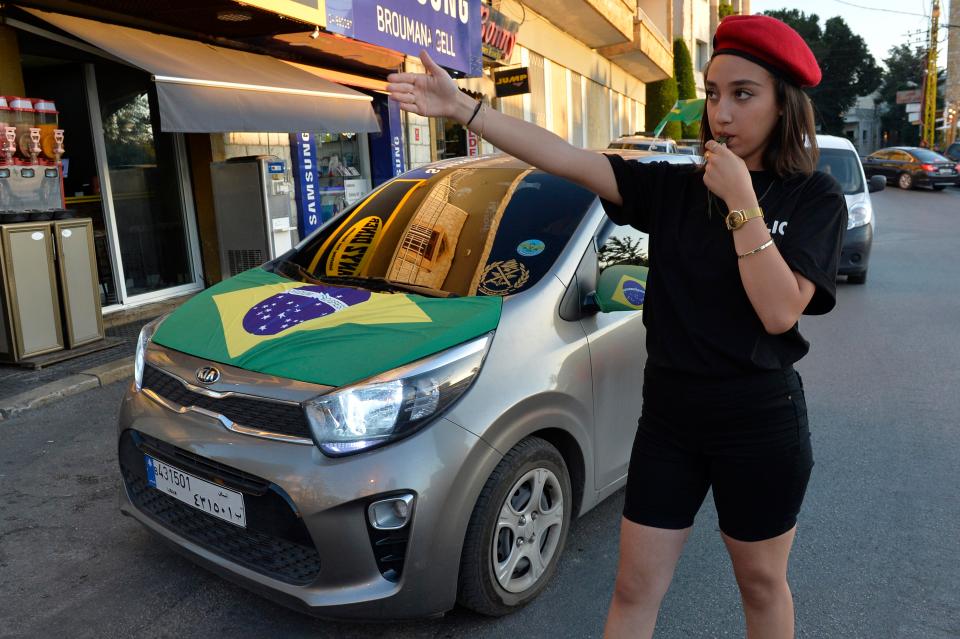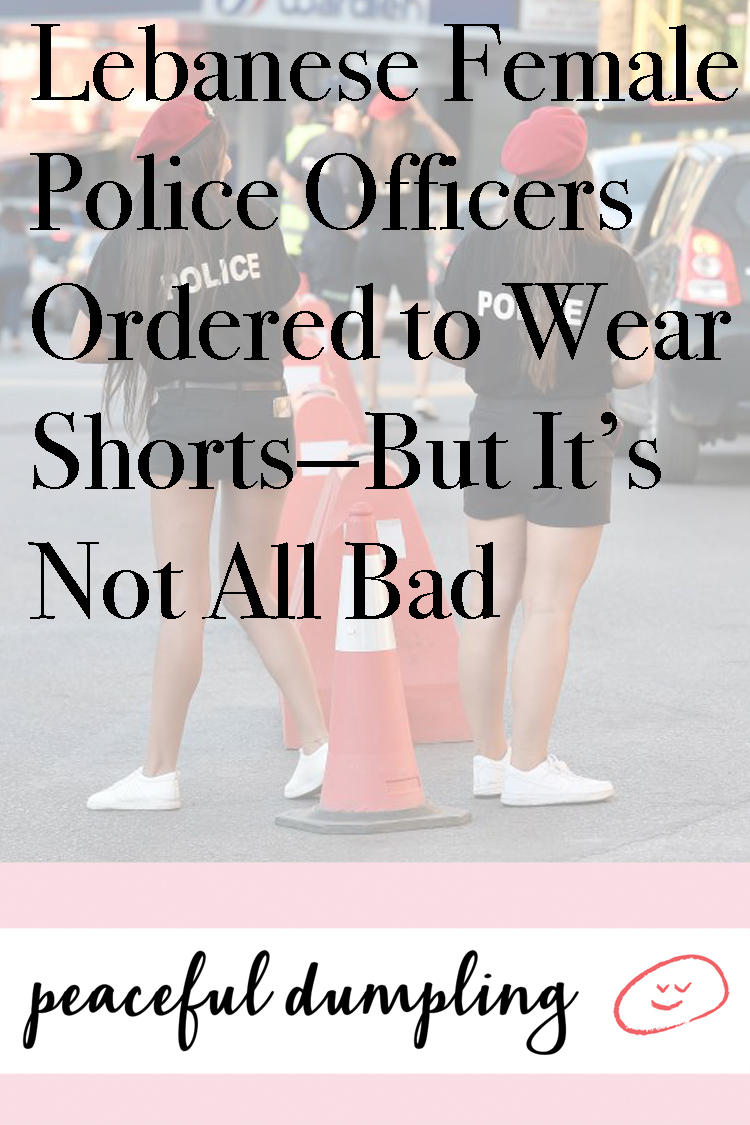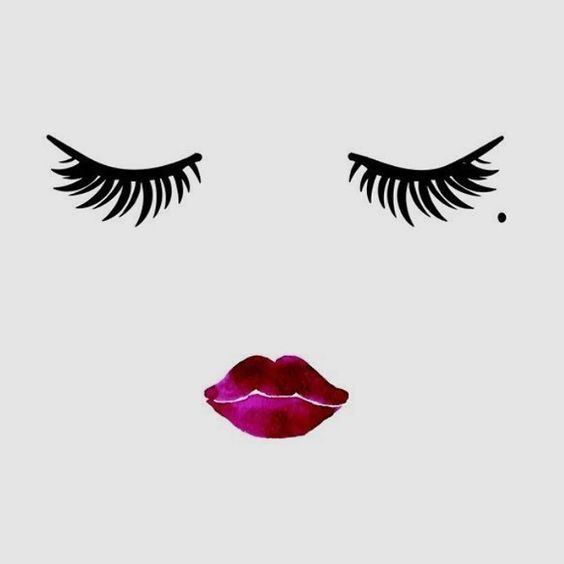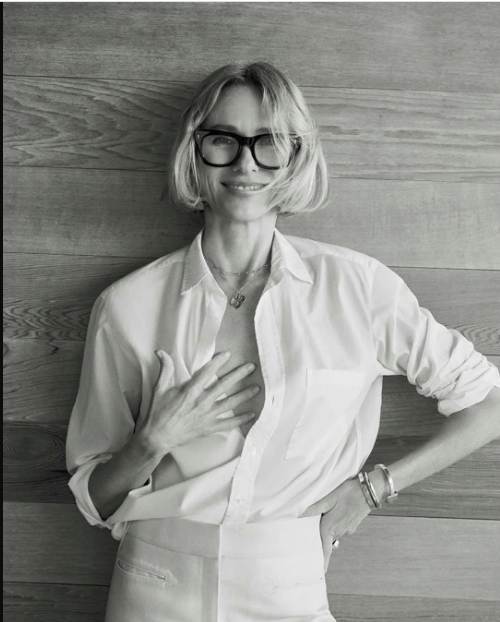Things are stirring in the Middle East and not in the way you might think. In the town of Broummana, Lebanon, the mayor has hired a young group of female police officers and dressed them all in shorts. This news story certainly registers shock value, but it takes more than a first glance to begin to formulate an opinion about what this actually means.

Many of us who would proudly call ourselves feminists might read this and be horrified at what could be deemed objectification; but is it actually that? This is where things get a little complicated.
In an idea world, men and women are free to live harmoniously and treated as equals. They are allowed to be themselves, most importantly. A lot of what we’ve seen over the past half a century is women told that in order to be treated as equals, they need to be more like men. This includes being able to apply for all the same kinds of jobs, work instead of stay home with the kids if that’s what she wants and I suppose, dress the same.
Only, is that true gender equality?
No matter how much you try to deny it, the fundamentals of our biology dictate that men and women are different. We are different in our nature and the way that we function. Men are linear, while women are cyclical. We each have different needs. And so I pose the question: has forcing women to be more like men really been that liberating? No, not so in my opinion. It has actually been a more cryptic form of suppression which is the most dangerous kind.
This story out of Lebanon is interesting, because one of the finer details shows that these shorts are only being worn by female traffic officers, and newly-hired ones at that. These are the ladies that are visible, on the streets, for everyone – including tourists, most importantly – to see. The mayor has openly admitted that he is doing it for the tourists, in fact, “We in Lebanon want to change the bleak picture of Lebanon in the West.”
As with any kind of sensationalist ploy to drive tourism, there is usually criticism from both sides. In Lebanon – and further afield – there’s been uproar from those criticizing why the male equivalents aren’t also being ordered to wear shorts. How is it likely that these women who have been employed in authoritative roles are to be taken seriously if they are being sexualized?
Only, isn’t it a bit presumptuous to claim that just because these women are wearing shorts, that instantly means they are sexual objects? Yes, the mayor has admitted that he’s done this to attract more tourists to his town, but he hasn’t actually said that it’s because he wants these women to be objectified. He raised the important point that most tourists in the Mediterranean region wear shorts. So the idea, I suppose, is that foreigners see the shorts and feel a sense of normalcy.

At the end of the day, these female officers have been employed in positions of power. They can tell people what to do on the roads of Broummana and that shows that they are indeed respected as authoritative figures. Why should it be such a crime that they wear shorts in their day jobs, as this is how many of them dress when they’re off the clock? Some have admitted that they very much enjoy being able to dress this way and hope the uniform is there to stay each summer.
By forcing women to cover up, we are shaming them for their bodies. We should all be able to wear what we want and not be made to feel objectified because of it. In a warm climate, it makes sense that a uniform of any kind might involve shorts and short sleeves. Why is it that we’ve been conditioned to believe that a woman showing skin is being exploited by default? This certainly has raised some interesting questions around our preconceived ideas of what women in power look like. Why should there be any one set of criteria?
This time of year in the northern hemisphere, many of us live in shorts and t-shirts, but when we go to work, chances are, we are unable to dress this way; it’s not considered office appropriate. I, for one, would welcome the opportunity to be able to wear more of what I wanted in the workplace, were it offered to me. This is the opinion those officers who have been vocal about their experience have shared.
The male officers’ uniform includes pants instead of shorts which is questionable. I think all officers–regardless of gender–should have a choice. If it’s a warm climate to work in, men should also be able to wear shorts if they wish.
I’ve traveled to the Middle East and it was appropriate for me to cover up completely where I was, because of the society I was immersed in. And that’s fine; we should all respect culture when we travel, even if we don’t necessarily agree with it. But this story shines–in a bizarre way–as a beacon of hope, for me. We’ve had some juxtaposing stories lately out of this part of the world, with Saudi women now able to drive on the one hand and the horrific arrest of a young Iranian woman for posting videos of herself dancing on her Instagram on the other. We experience social conditioning about what it means to be a woman all around the world, but I hope this serves to normalize our bodies as vessels for doing our work and being who we are, nothing more, nothing less.

What are your thoughts on this story? Do you think this deserves the attention it is getting?
Also by Kat: 5 Zero-Waste Tips To Be A Total Eco Goddess This Festival Season
Related: These Podcasts For Women Give Us All The Feels: Feminism, Pop Culture & #RealTalk
Why No One Is “Not Queer Enough”—How to Create A More Inclusive Pride Movement
Get more like this—Subscribe to our daily inspirational newsletter for exclusive content!
__
Photos: The Sun




